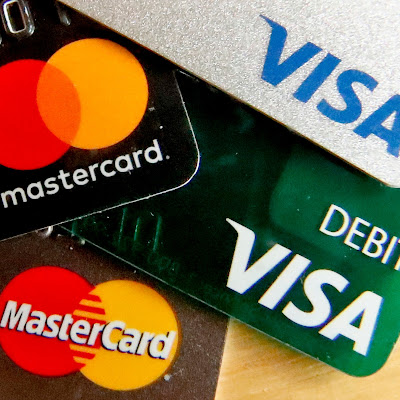 |
Years of social conditioning on the risks of obtaining and using credit cards has made individuals wary of these tools. In fact, existing discourse on credit cards and how it leads to individuals being pummeled by high-interest charges and landing in a perpetual cycle of debt has contributed to unfounded fears around its use. Add to this the context of a global pandemic and a volatile economy and people are ready to determine the use of credit cards as anathema. However, are these fears rational? Sure, credit cards come with a series of essential cautions about its use, but do they deserve to be treated with disdain? Or should they be analysed objectively for what they are? Safe and useful financial management tools when used responsibly.
The pandemic has brought to light financial anxieties of individuals which are caused by low levels of financial literacy. Now, more than ever there is a need for a focus on credit literacy and provision of tools that encourage its responsible use. To begin with, it’s important to maintain perspective when it comes to the use of credit. The first main concern people have is with how credit cards have the potential to rack up debt and burden individuals with exorbitant interests which in turn leads to an unending cycle of inability to pay one’s bills, leaving them trapped in debt. This is a misconception, and your real concern should instead be on whether you are over-relying on credit. Do NOT treat your credit cards as a supplemental source of income, especially so during the pandemic. Yes, you can use cards to finance specific purchases that might not be possible through the immediate use of income, but make sure those payments are still within your means. If your income is insufficient to fund your lifestyle, using credit isn’t the solution. Instead, you should consider either earning more or spending less.
Another Reading: How To Use Credit Cards Wisely?
Here is some advice you should keep in mind for the responsible use of credit, especially during this time.
Tips on responsible use of credit cards
2) Manage multiple credit cards wisely by setting up autopay and preferably use one platform for this function. This would help you keep track of your repayments and provide reminders about due dates which would help ensure you never miss them.
3) While paying off minimum dues can help avoid penalties, it is advisable to pay off your credit card bill in full or as much as possible every month to avoid incurring high-interest rates, which allows you to cut costs like these around this time.
4) If you aren’t considering the use of credit cards during this time, you can temporarily discontinue its use, but don’t opt to cancel them as this will hurt your credit score.
5) Remember that the six-month moratorium on the payment of credit card dues is essentially a deferment, which means that interest rates would continue to accrue during this time on the outstanding principal. It is advisable to pay off your credit card bills and not opt for the moratorium if possible, to avoid incurring high-interest rates.
Tips on efficient use of credit cards
1) Opt for using cards with a higher credit limit. Low use on a card with a higher spending limit indicates that you aren’t credit hungry, which would help improve your credit score.
2) Understand and optimise the use of rewards offered by your credit card. Consider taking time out to research all the benefits your card can offer you, and analyse which pre-existing spends could be cut down by using these rewards.
3) If you’re facing an acute liquidity crunch, you could opt to make big-ticket spends like rent payments through your credit card bills. This will help you with additional time to manage your liquidity shortage while allowing you to avail an interest-free period and also benefit from the rewards offered through the use of your card. However, be conscious about these spends by prioritising repayment of your bills and do not opt to revolve this debt. If you are facing money troubles, view this as a last resort measure to be used in times of emergency.
Another Reading: A Detailed Guide of your Credit card billing cycle
By Kunal Shah (Founder and CEO of CRED)


0 Comments